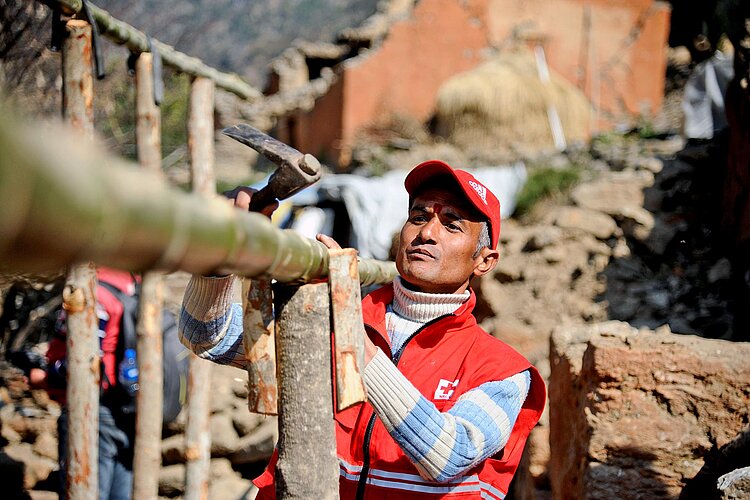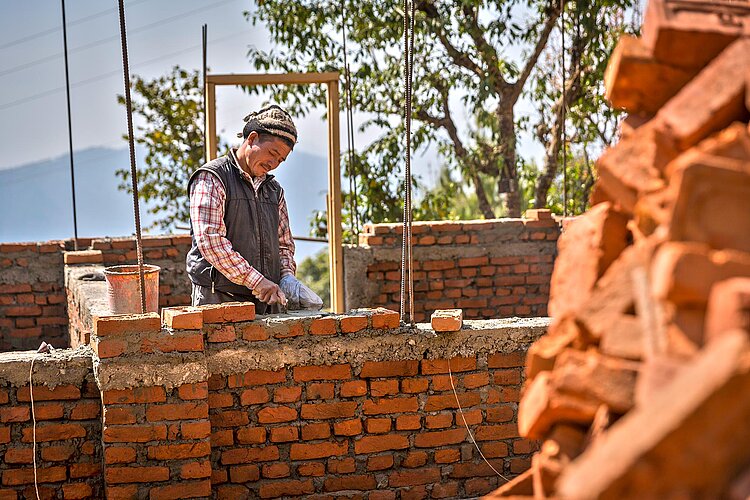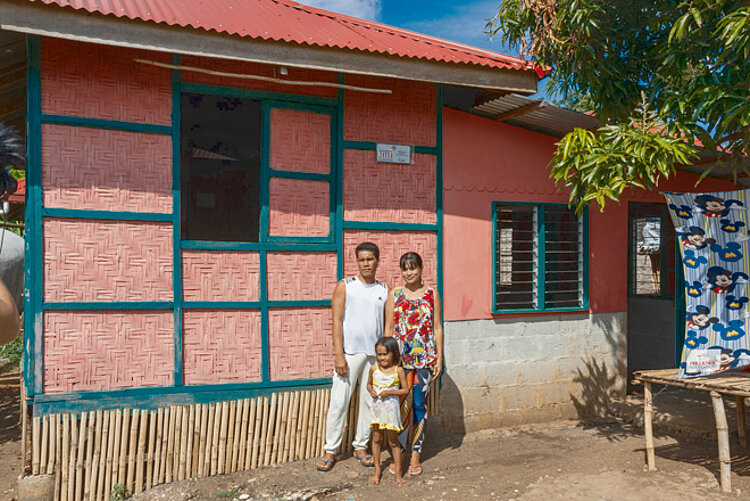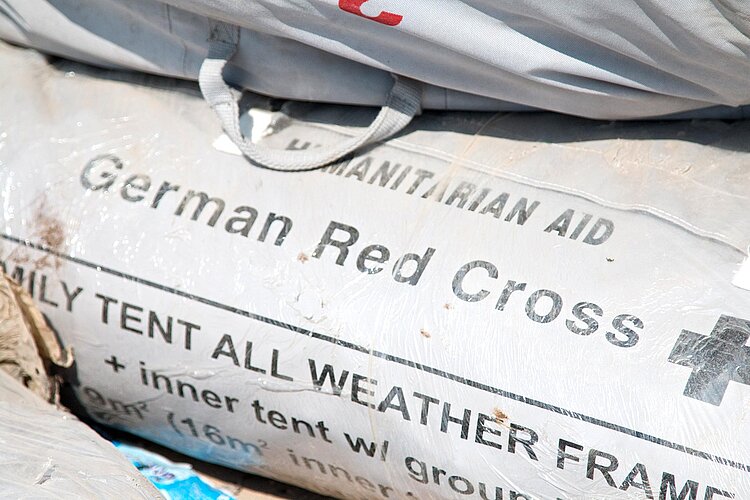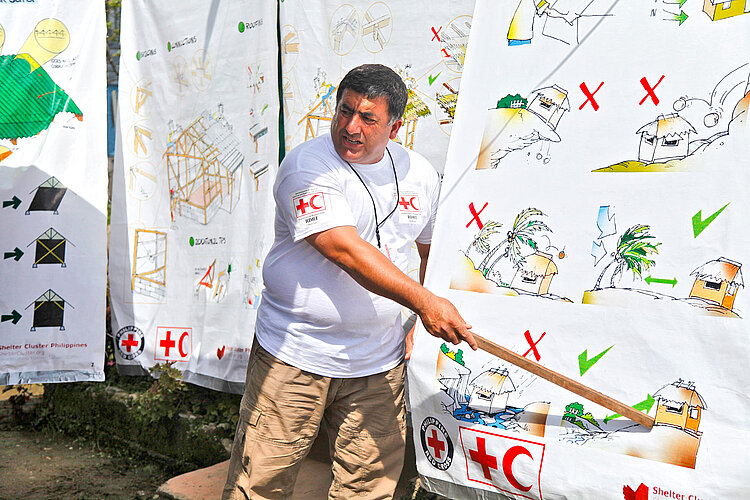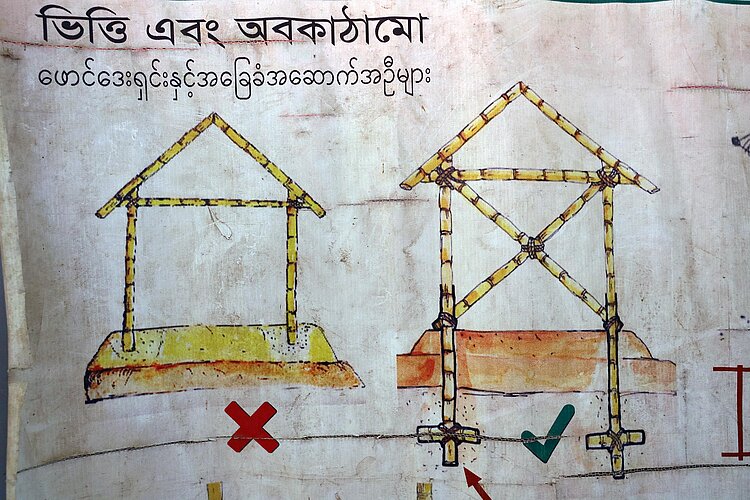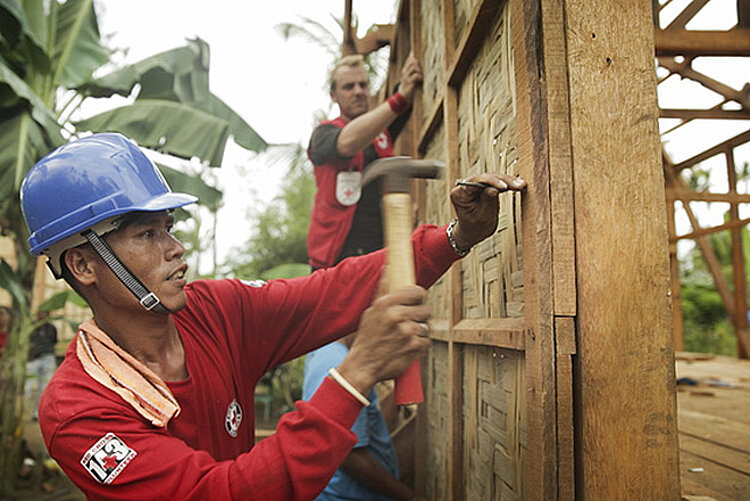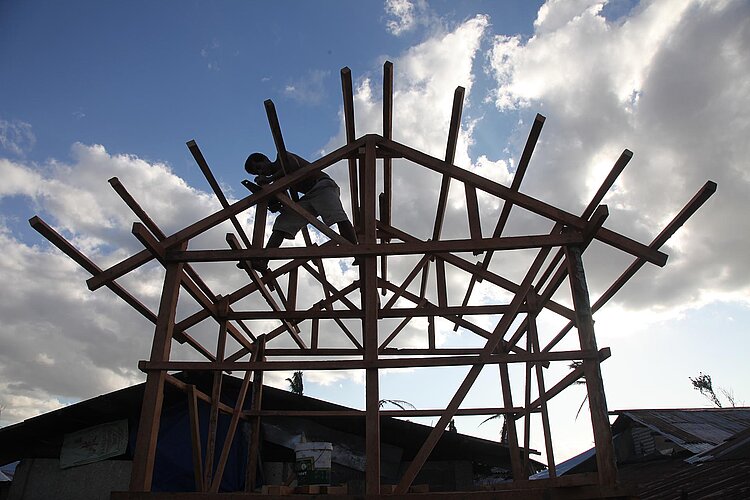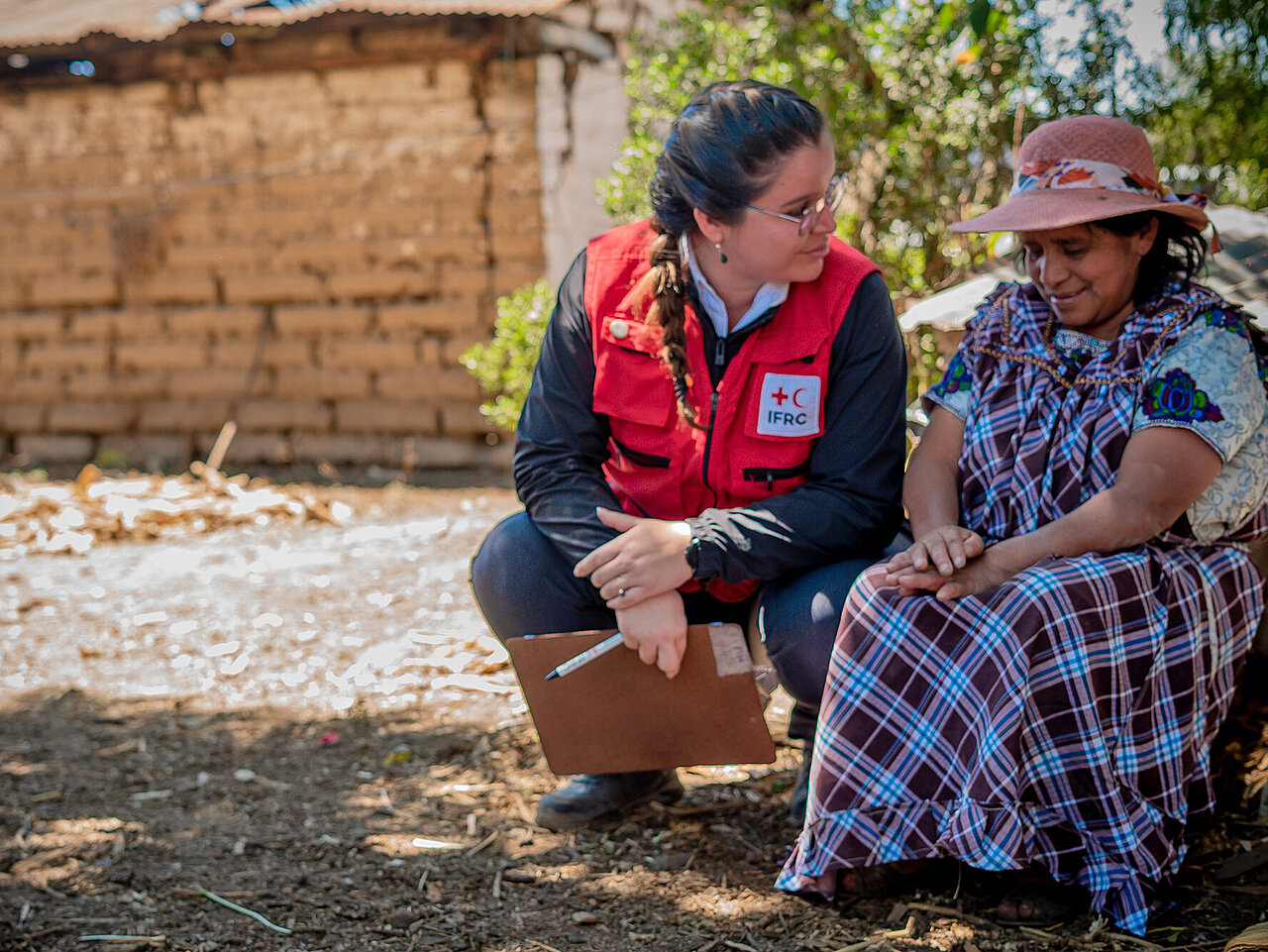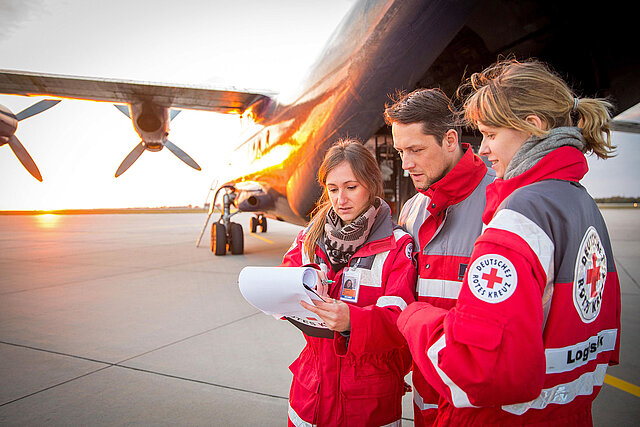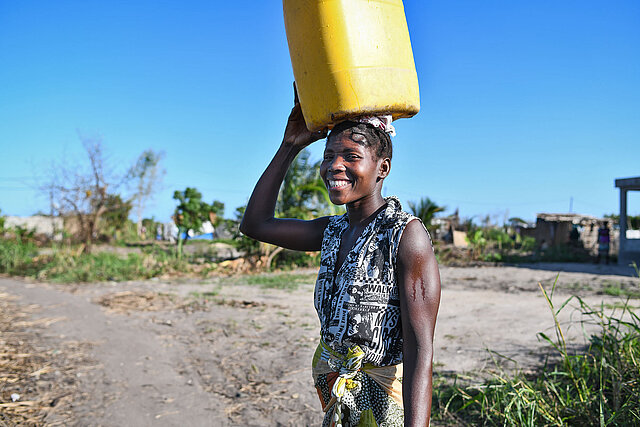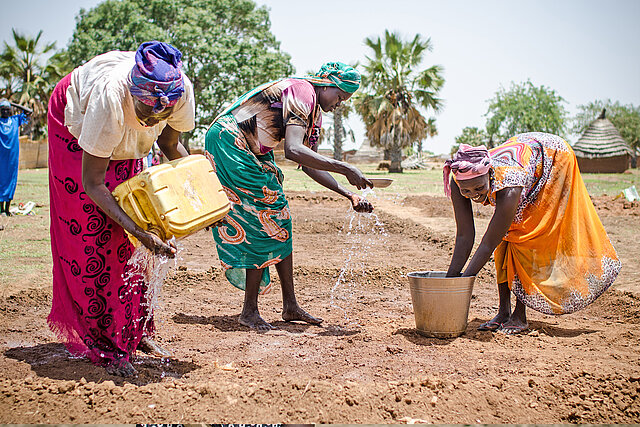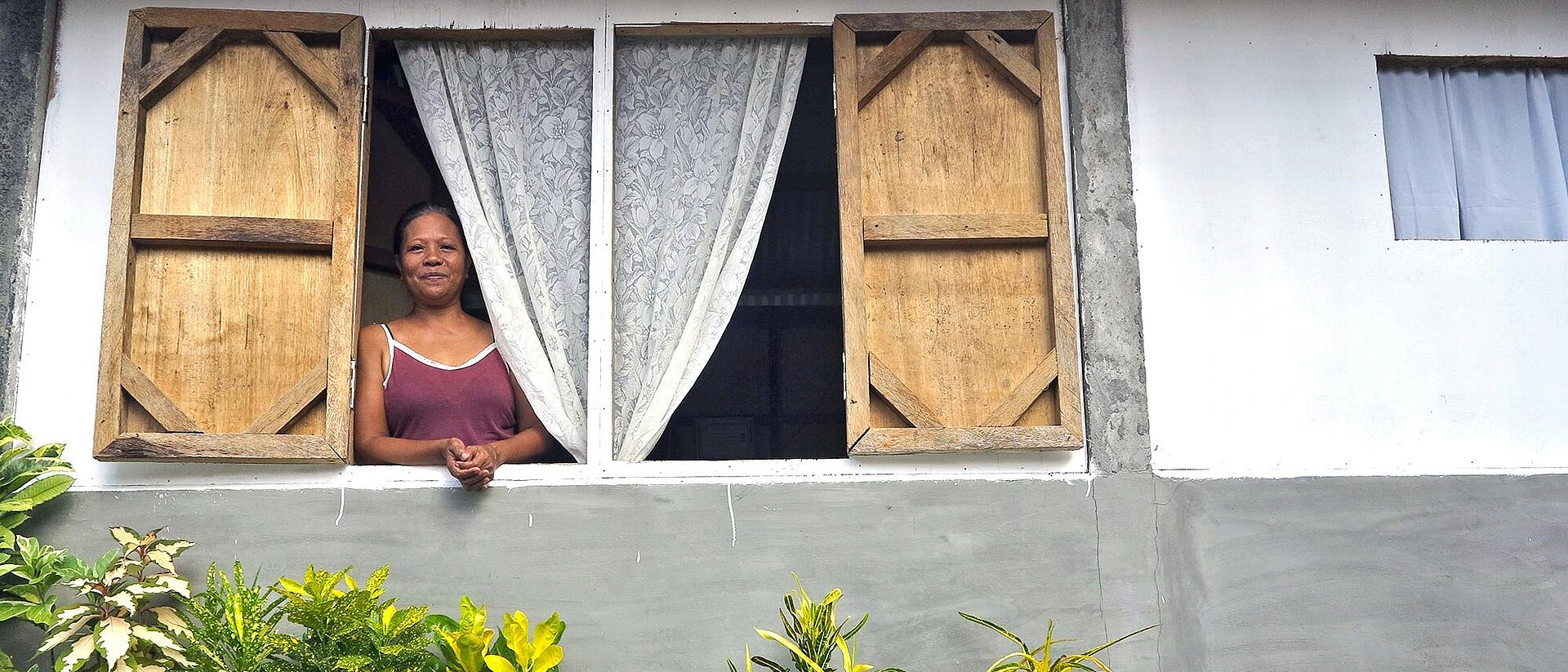
Provision of Shelter
"I'll give you shelter from the storm," sings Bob Dylan in his eponymous song. This could also be the motto of the German Red Cross when it comes to building shelters for the population in disaster-affected areas.
Tsunamis, typhoons, or earthquakes often cause massive destruction of buildings in disaster-affected areas. Some of these structures could more accurately be called shacks. They are often made of little more than patchwork corrugated iron, wooden panels or tarpaulins cobbled together. In the face of extreme weather events, they offer no protection to families.
Constructing safe Buildings
The German Red Cross therefore supports the repair of damaged buildings and the construction of new shelters in many affected regions.
To do this, the GRC has developed a system to provide affected people with the necessary support as quickly as possible. For example, the GRC – in collaboration with local Red Cross and Red Crescent Societies as well as local craftsmen – sets up workshops on-site. There, walls and building components are prefabricated and afterwards transported to the construction sites. Local carpenters can then erect a shelter within six days, providing a family with a new home.
These shelters are built from local materials such as palm wood and bamboo and they can offer protection against wind speeds of over 200 kilometres per hour. This represents a significant leap forward in terms of material use and safety.
Training the Population
Furthermore the GRC trains the local population in earthquake- and storm-resistant building techniques. This enables the community to independently select appropriate materials and apply the suitable construction methods when building a new house in the future.
It must not be forgotten: Building a new home for families is not only about safety but also about dignity, privacy, and strengthening resilience against the impacts of climate change.
Therefore, the GRC is involved in shelter construction in many regions of the world and is part of the global Shelter Cluster initiative of the International Federation of Red Cross and Red Crescent Societies (IFRC).
